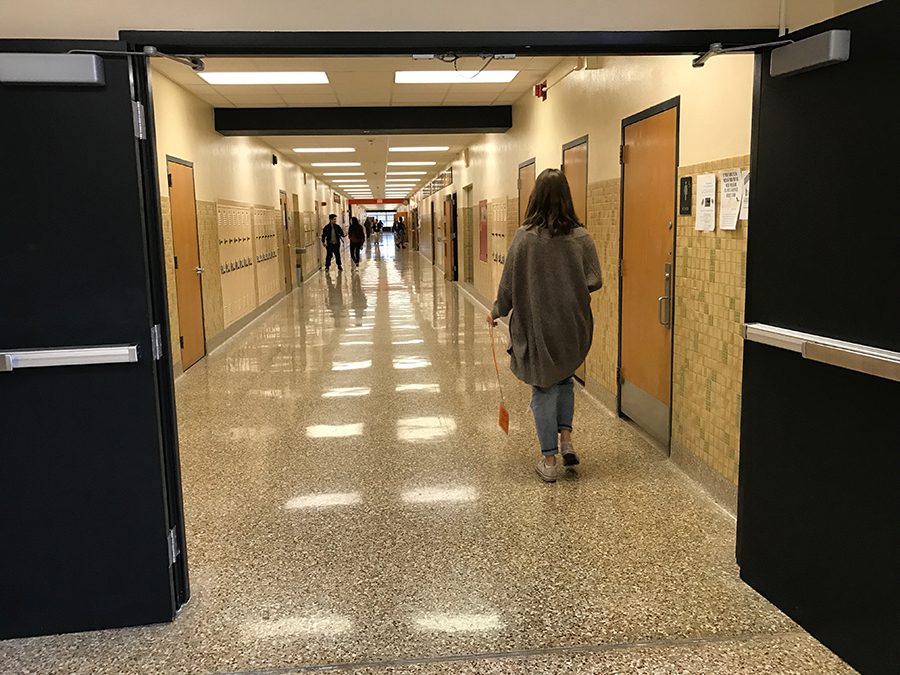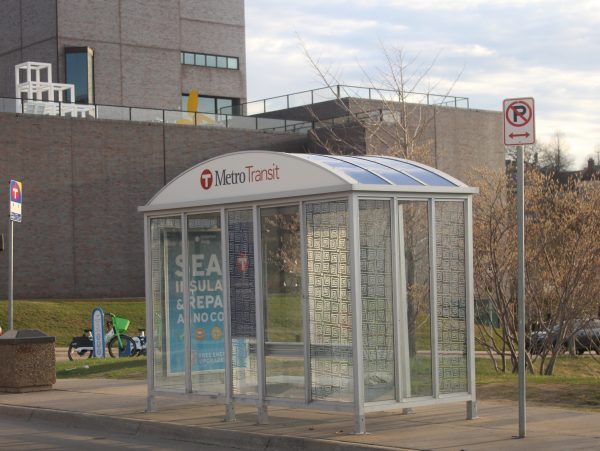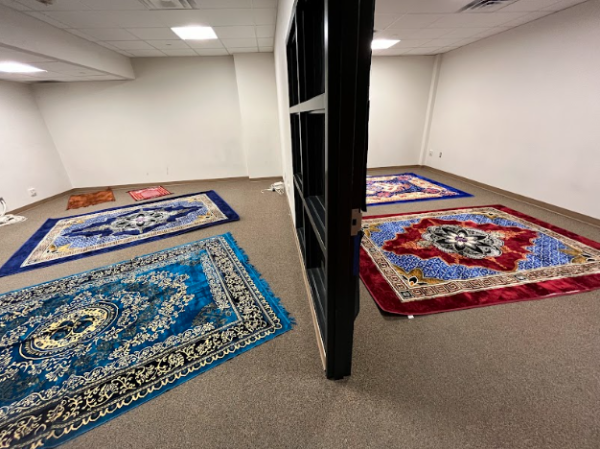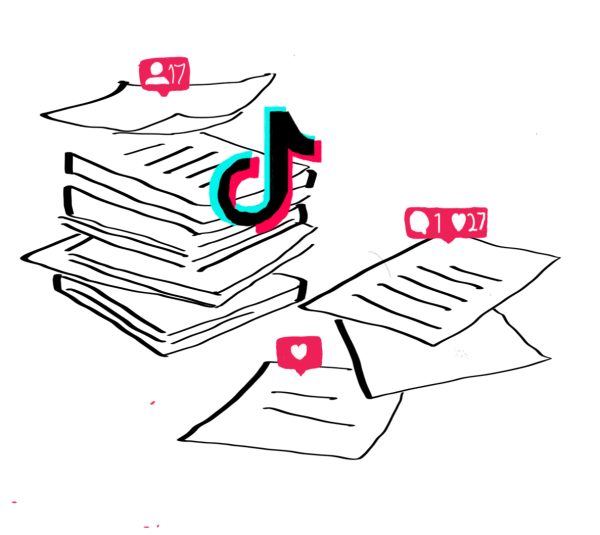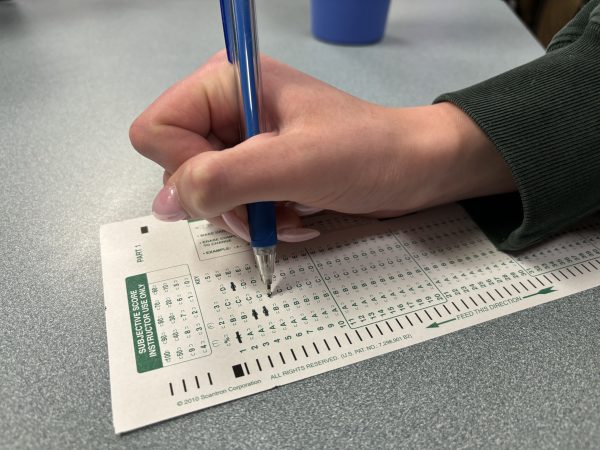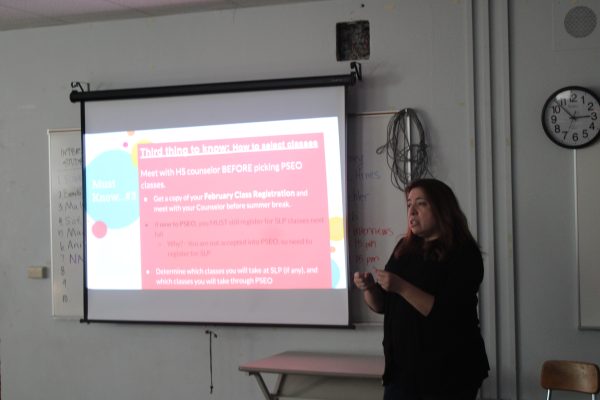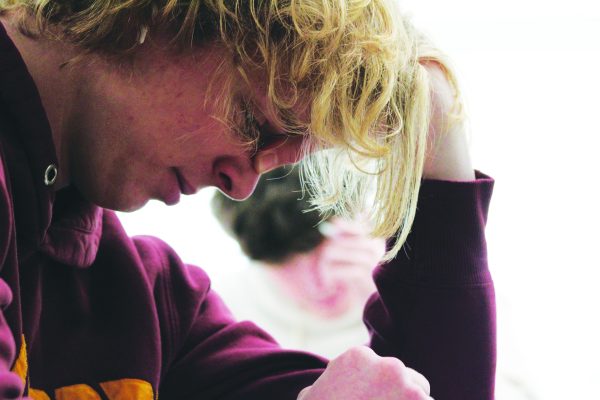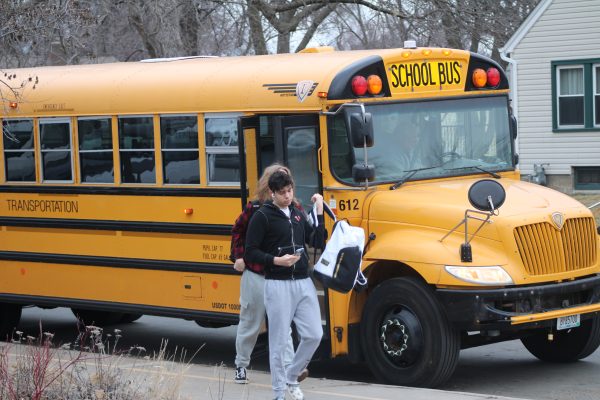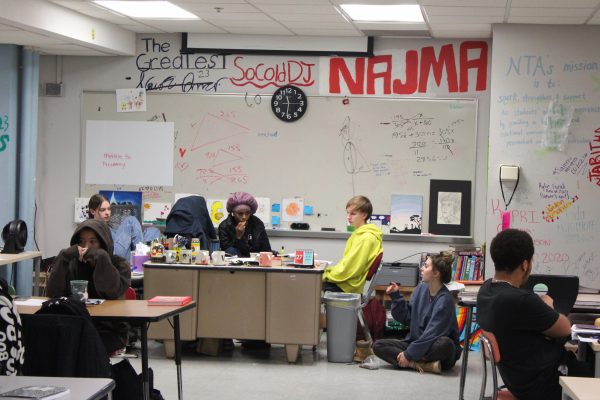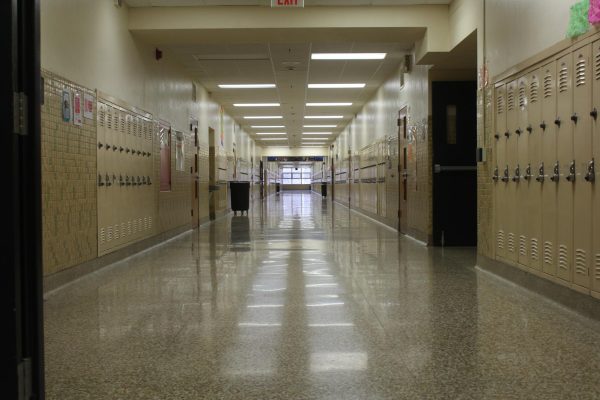Hallway sweeps continue to enforce pass policy
Three sweeps conducted on weekly basis
A student walks in a hallway during the class period. She holds a restroom pass to ensure she will not be penalized for walking without a pass.
April 23, 2017
According to assistant principal Kari Schwietering, the administration followed through on their promise to conduct hallway sweeps searching for students without passes in the halls during class time.
“We’ve had three different hallway sweeps and two of them we’ve had no students in the hallways without passes and one where where we’ve had a small handful a students that were in the hallway,” Schwietering said.
Freshman Kiyla Ganske said despite the fact that she finds the new enforcement measures too strict, she now makes an effort to get to her classes on time.
“It makes sense, but then again if I was like in gym I wouldn’t want to get a pass to go get a drink or something. It’s too strict,” Ganske said. “Now it affects me for the better because I really try to be on time and try to stay out of the hallways because I don’t want to be in ISS or anything.”
Schwietering said all students caught without passes in the hallway during a hallway sweep were followed up with the procedure announced Monday April 3, with a call home.
“We were able to follow up with them regarding them in the hallway so what I would say that (hallway sweeps) are successful,” Schwietering said. “I would say from that standpoint at least it appears to be going well.”
According to Schwietering teachers must also make sure they are enabling students to follow the pass policy by writing passes for students when they aren’t in class.
“Our hope is just that teachers are following up and making sure that they’re writing passes and keeping kids in class and that students are in classes and not lingering in the hall or not attending their classes,” Schwietering said.
Freshman Amina Spry said that after these new enforcement measures were announced, she noticed teachers write more passes when they used to not do so.
“(Ms. Siddiqui) used to just be like, ’go to the bathroom,’ because she doesn’t have a bathroom pass, but now she makes sure she gives you an object in her room,” Spry said.
Although Schwietering said she would like to credit the new pass policy enforcement measures with the fact that there were no repeat incidents, she is not sure if that is the sole reason.
“I don’t know to say from one week to the next week has the attendance improved,” Schwietering said. “I could say that hallways have less students in them on any given period then prior to spring break, but I’d like to say ’sure that is one of the the reasons why’ and I’m sure that there’s a variety of reasons.”
Schwietering said she supports positive approaches, but so far the ISS punishment for being without a pass in the halls seems to work.
“When all possible I think it’s always better to be proactive and positive approaches are generally better,” Schwietering said. “Do I think that ISS is the most effective way to address certain behaviors? Not necessarily, but it is one way to be able to impact a response for behaviors that we want to deter.”
Schwietering said the administration conducts hallway sweeps randomly, looking at recent patterns to help determine how many sweeps to conduct.
“Hallway sweeps are occurring randomly. Sometimes it could be, depending on the week, once a day, twice a week or it could be twice in one day,” Schwietering said. “So it just depends on when we make sure that we have everybody available to do it or if we’re seeing a pattern of a lot more people in the hallways those kinds of things.”
According to pottery teacher Angela Jacob, since the new enforcement measures of the pass policy although she has not written more passes, she does make sure that all students leaving her class during the hour have a pass.
“I think it’s important for kids to have a pass in the hallway and have a purpose and a starting point and a destination and they need to get there as soon as possible,” Jacob said.
Schwietering said she will continue to work to improve attendance and use different tools in efforts to get students to class.
“The best way to get students to class is to ensure that students feel welcome in the school, that they have relationships with their teachers and that they actually are connected and are excited about what going on in their classrooms,” Schwietering said. “Love of learning, that will get kids to class not the fact that they’re worried about being sent to ISS.”



